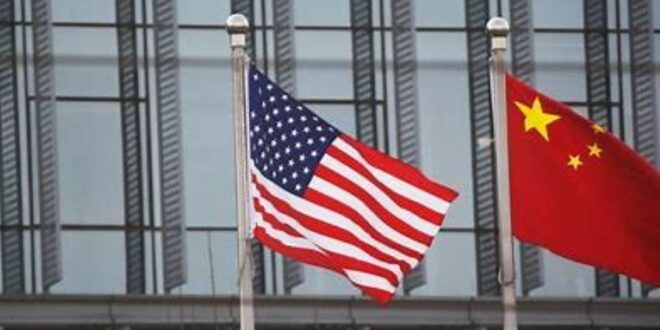In a dramatic escalation of trade tensions, the White House has announced a 104% increase in tariffs on select Chinese imports, reigniting fears of a global economic slowdown. The move sent ripples through financial markets—including crypto, where Bitcoin (BTC) dropped 3% in early trading.
The tariff hike, which targets a wide range of goods from electronics to industrial components, is being framed by the administration as a strategic countermeasure to what it calls “persistent unfair trade practices” by Beijing. However, markets were quick to react to the potential inflationary impact and heightened geopolitical strain.
“This is the most aggressive tariff increase since the peak of the 2018 trade war,” said a senior analyst at a global investment bank. “It’s triggering a classic risk-off response.”
Bitcoin Reacts as Risk Appetite Shrinks
Bitcoin, often considered a hedge against fiat instability, didn’t escape the broader market sell-off. The leading cryptocurrency fell roughly 3% to below $63,500, as investors pulled back from risk assets amid growing uncertainty.
Ethereum (ETH) followed suit with a 2.8% decline, while major altcoins like Solana and Avalanche also posted losses.
Despite its “digital gold” narrative, crypto continues to show sensitivity to macroeconomic headwinds—especially when global liquidity and investor sentiment take a hit.
“We’re seeing Bitcoin behave more like a risk-on asset right now,” noted a crypto strategist. “In times of geopolitical shock or monetary tightening, it tends to follow equities more than diverge from them.”
What the Tariffs Mean for Markets
The 104% tariff hike is expected to strain U.S.–China relations further and may prompt retaliation from Beijing. Economists warn that such moves could push up import prices, disrupt global supply chains, and weigh on growth—particularly in manufacturing and tech sectors.
For traditional markets, the announcement led to a dip in equities and a modest rise in gold and Treasury yields as investors rotated toward safer assets. The U.S. dollar strengthened slightly, adding pressure on riskier, dollar-denominated investments like crypto.
Analysts are closely watching for China’s response and any signals from the Federal Reserve on how it may weigh rising tariffs in its policy outlook. Meanwhile, crypto investors are bracing for more volatility.
“Bitcoin could recover quickly if the narrative shifts toward inflation protection,” one trader noted. “But in the short term, macro uncertainty is king.”
As the trade war narrative returns to the forefront, crypto markets may find themselves caught between their promise of independence and their correlation to traditional investor sentiment.
 Business Sandesh Indian Newspaper | Articles | Opinion Pieces | Research Studies | Findings & News | Sandesh News
Business Sandesh Indian Newspaper | Articles | Opinion Pieces | Research Studies | Findings & News | Sandesh News



